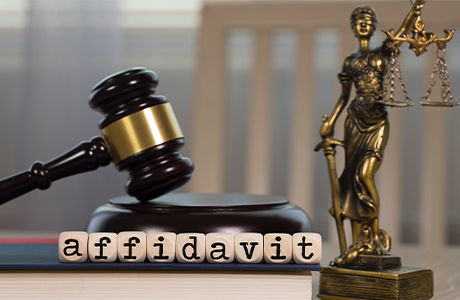Blog
Do I Need A Trust? - When You Should & Shouldn't Set Up A Living Trust
I am frequently asked by prospective estate planning clients, "Do I need a trust?" The answer is the classic one: It depends. They are not a one-size-fits-all solution. Whether setting up a living trust is a good idea for you should be discussed with an estate planning attorney who has full knowledge of your assets, family circumstances, and desires.
Read MoreHow An Estate Is Administered In Texas When There Is No Will
Families frequently come to me needing to know how to figure out who gets what when a loved one dies without a will. Unfortunately, the answer is that they may be in for a lot of expense and time in a very complicated legal proceeding. A judge will need to determine who will receive portions of the estate, either using an Affidavit of Heirship or an Application for Determination of Heirship.
Read MoreWhat Is A Small Estate Affidavit Proceeding And What Does It Cost?
If your loved one died without a Will, a Small Estate Affidavit may allow you to skip a more complicated and expensive probate proceeding. There are specific legal requirements that must be met before a Small Estate Affidavit can be used, and it does still have a cost. Nevertheless, it is the easiest and least expensive court proceeding for transferring assets to heirs when there is no Will.
Read MoreWhat Happens If You Die and Own Out-Of-State Property?
Probate or administration is the legal procedure for settling and transferring a person's estate, including assets and debts. If a person owns property in a different state from that in which he or she died, an ancillary probate or administration in the other state might be necessary. If there was a Will, a probate will likely be proper, and if there was no Wll, a costly administration may be necessary.
Read MoreHoliday Travel: Why Parents Of Young Children Need Wills
Most young parents don't want to even think about the possibility of death and see no need for estate planning. However, if a tragedy struck and both parents of minor children were killed, the situation left for their loved ones to deal with is extremely complicated, expensive, and emotional.
Read MoreWhat Is A Muniment Of Title Probate, And When Is It Appropriate?
Texas law provides for a shortened, less complicated, less expensive form of probate in specific circumstances. This is called probate as a muniment of title. It is a simple process compared to a full, regular probate.
Read More4 Estate Planning Questions To Ask Your Loved Ones Over The Holidays
The holidays are a perfect time, while family and friends are gathered together (safely distanced, of course), to discuss whether your loved ones' estate planning and related legal matters are in order. It is an emotional subject to approach, but it is much better to be brave and tackle the subject than to avoid the discussion. Later regrets that plans which should have been made were not, will leave you with an even harder situation to deal with.
Read MoreUse This Slick Trick To Transfer Real Estate Without Probate In Texas
Texas law has recognized an estate planning trick that is extremely effective to help avoid probate and is low cost, called a deed with an enhanced retained life estate, or “Lady Bird” Deed, or Transfer on Death Deed ("TODD"). These are basically the same form with minor differences. These tools can be used for all types of real estate interests in Texas and are expanding to many other states as well.
Read MoreFinding A Good Estate Planning & Probate Attorney
With so many estate planning and probate lawyers out there, how do you pick the right one for you? You don’t have to settle for an attorney who isn’t a good fit for you or your legal matter. These 6 questions will help you determine whether an attorney will have your best interests at heart.
Read More4 Signs You're Working With The Wrong Attorney
When researching potential attorneys for your case, always do your homework. Choosing an unqualified or dishonest attorney could not only result in a negative outcome for your legal situation, but it could also cost you more money in the long run.
Read More








